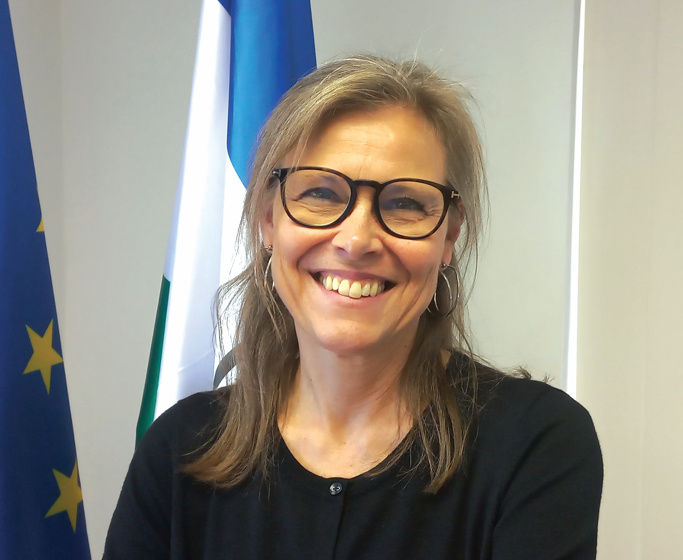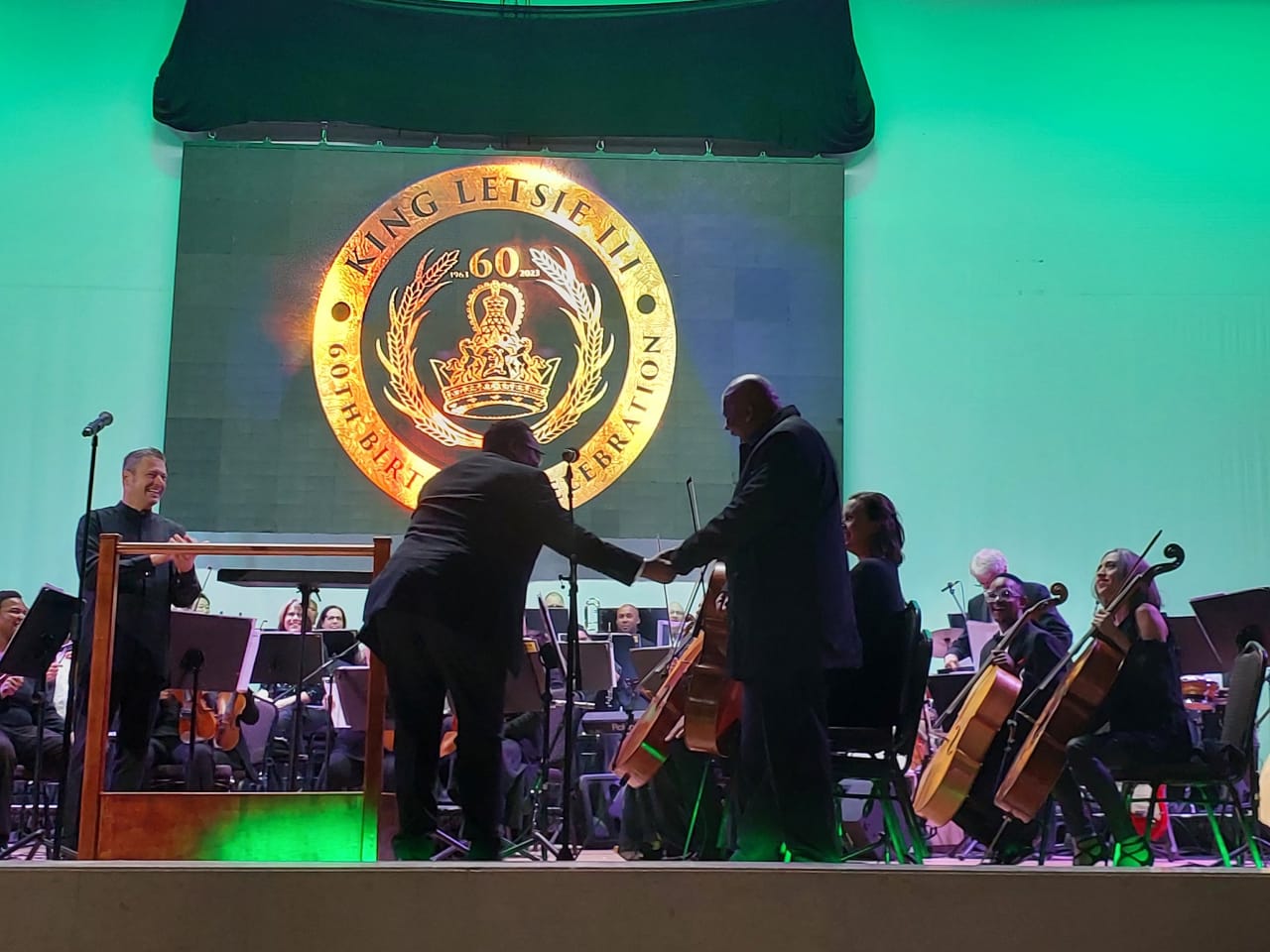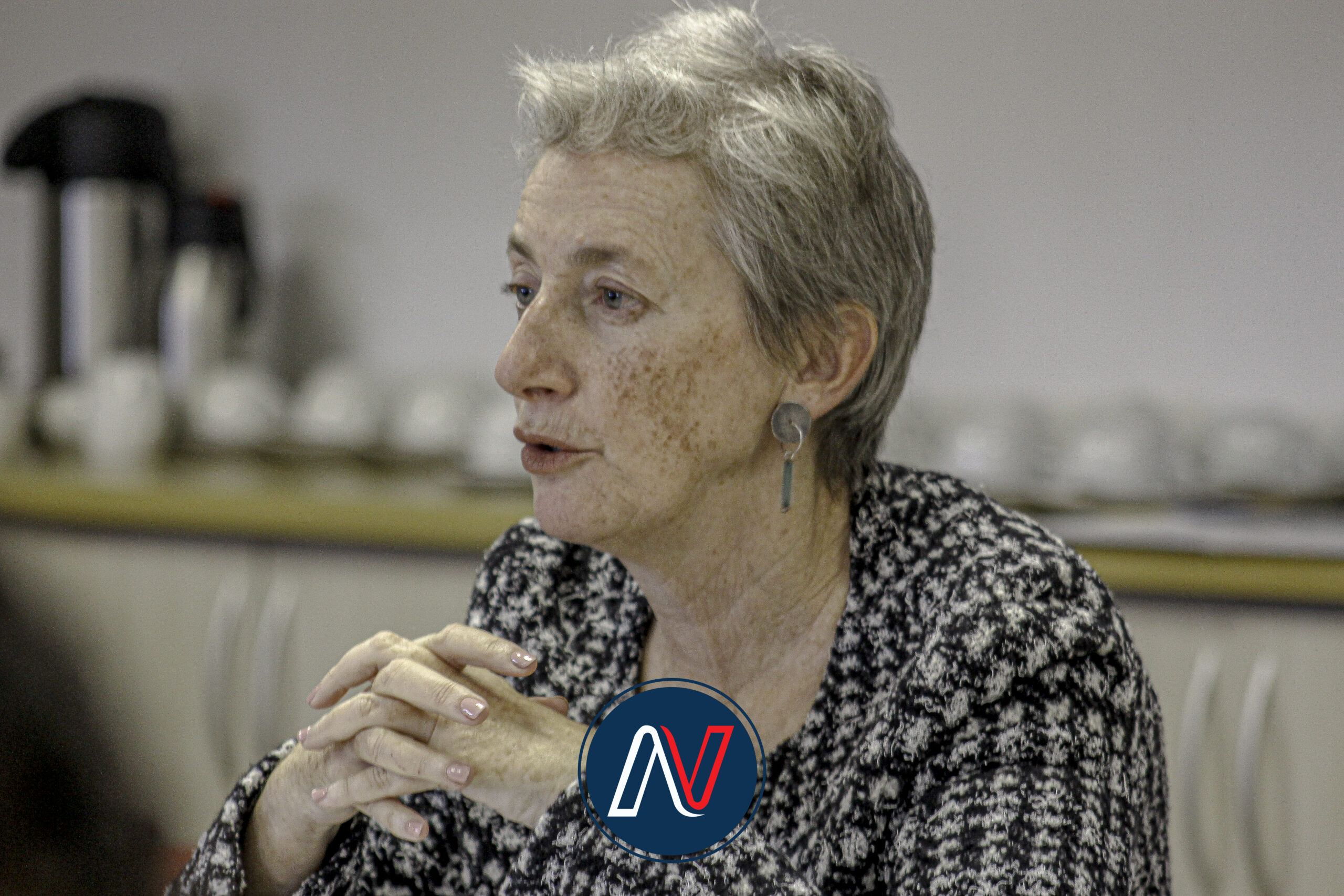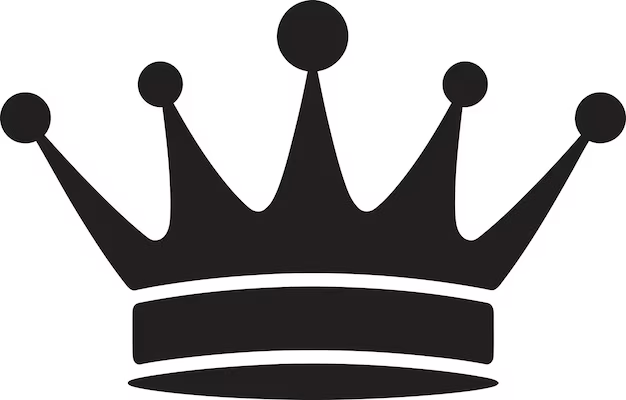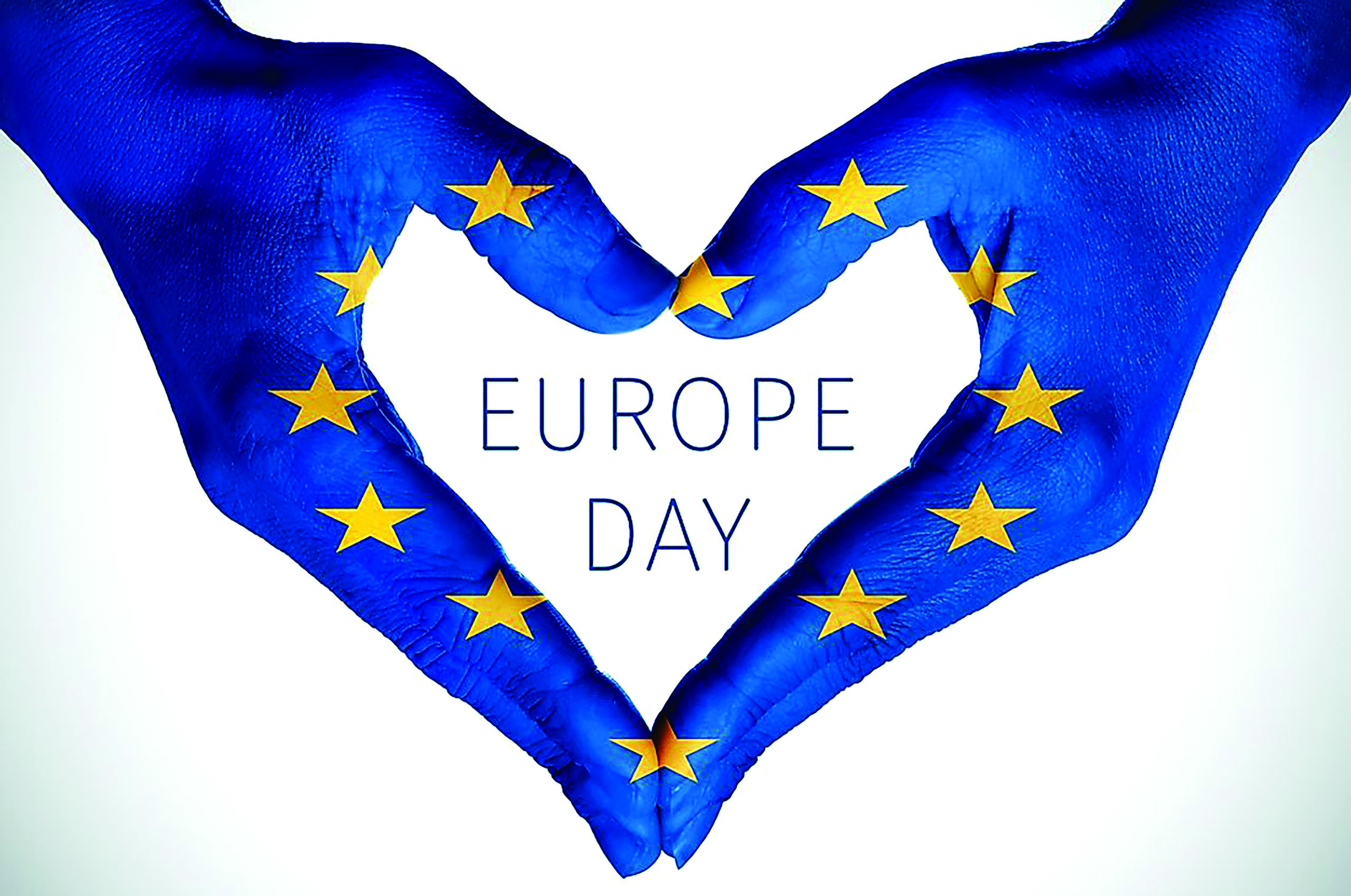On October 2, 2025, Ambassador Mette Sunnergren of the European Union (EU) presented her letters of credence to His Majesty King Letsie III at the Royal Palace in Maseru. She succeeds Paola Amadei, whose tour of duty in Lesotho recently came to an end. A Swedish national, Sunnergren becomes the second woman and the 13th EU Ambassador to represent the EU in Lesotho since 1976.
A seasoned career diplomat, Lesotho marks her first posting as an EU Ambassador, following an extensive career representing Sweden. She has previously served in several African countries, including Mozambique, the Democratic Republic of Congo, Sudan, and Zimbabwe.
In an exclusive interview with Newsday journalist Thoboloko Ntšonyane, Ambassador Sunnergren shared her aspirations, expressing a strong desire for tangible change and meaningful results. She also underscored her commitment to deepening EU–Lesotho relations and strengthening partnerships with other key stakeholders.
Below are excerpts from the interview.
Thoboloko Ntšonyane (TN): How has it been so far in these few weeks that you have been in Lesotho and assumed the role of EU Ambassador to Lesotho?
Mette Sunnergren (MS): It has been quite interesting, and the welcome I have received has been very warm. I struggled a little bit in the beginning with the cold weather, it was springtime, but it has been getting better and better as the temperatures rise.
I came to join an incredible EU Delegation, and I really enjoy working with my colleagues. They have been super supportive and have helped me settle in. I have even had the opportunity to learn a few words in Sesotho. What has struck me most about the Delegation is the amazing team spirit, it has been fantastic.
I have also had some early interactions with government representatives, organisations, and individuals from civil society. Everyone has been so open and generous in sharing their knowledge and information, which has been very helpful, especially at this early stage. I’m still gathering all the pieces of the puzzle, but I know it will come together with time.
TN: What did you notice first about Lesotho and Basotho?
MS: My first impression, as soon as I got off the plane, was the spring flowers and the trees, it was so beautiful! And then, of course, the mountains. I think most people notice the mountains first, but I saw the trees, and they immediately put a smile on my face. The blooming spring made me feel like there was a new beginning here.
The second thing that struck me, as many people mention, is the iconic Basotho blankets. They are beautiful, and I love that people actually wear them, not just as symbols, but for warmth and style. I have seen herdboys wearing them, a minister wearing it and looking so nice, it cuts across all levels of society. I already have two myself, haha!
TN: Please tell us a bit about yourself. Who is Ambassador Mette Sunnergren?
MS: Professionally, I have been a diplomat for many years, serving in my country’s Foreign Ministry, Sweden. This is actually my first posting representing the European Union.
As a Swedish diplomat, I previously served as Ambassador to three African countries: the Democratic Republic of Congo, Sudan, and Mozambique. I have also served as Head of Cooperation and Deputy Head of Mission in a few countries, including Zimbabwe.
At some point, I felt ready to explore new opportunities, and the EU was a logical next step. I applied, and here I am. Most of my career has been spent abroad, and that is where I feel I can make the greatest contribution. I enjoy being close to the people I work with, whether as a diplomat or a development practitioner, and learning from new cultures and experiences. I never wanted to stay in one place forever; this career allows me to live that dream.
Privately, I am a mother of two sons who are still in school. Unfortunately, they are not with me here, one is in Mozambique, so he is not too far away, and the other is studying in Switzerland. Being a parent has probably taught me more about diplomacy than the profession itself, you negotiate, you make peace, you ensure cooperation even when there are disagreements. (laughs) I miss them a lot; it is a bit quiet at home without them.
Now I share my home with two cats, so I still have some company. I am also looking forward to visiting my family, my parents are still in Sweden, and those visits always give me a sense of belonging and connection.
As for who I am, I see myself as a doer. I like to see results. I want things to happen. Discussions and processes are necessary, of course, but at the end of the day, I want to see real change and transformation for the better, and to feel that I have been part of making that happen.
TN: Are there any particular hobbies that you enjoy, and which are those?
MS: I am quite a sporty person. I do some form of exercise every morning before going to the office, it is a great way to start the day and feel energised. On the rare days I skip it, I always feel like something is missing.
During weekends, I also stay active — I play tennis, and although I am not a golfer yet, I would love to learn. I enjoy hiking as well; I have already been on three hikes here in Lesotho. Just like in my home country, what I love is the freedom to move around and explore nature, it’s really impressive.
For relaxation, I like to read and watch movies. It helps me to detach a little from my own realities and step into someone else’s world for a while.
TN: What does the work of the EU Ambassador entail?
MS: First of all, I am the representative of the European Union in Lesotho. That means my work involves meetings, discussions, emails, and interactions with Basotho across different sectors. Now that I have presented my credentials, I can formally engage with the government, civil society, academia, the media — you name it.
In those engagements, we talk about EU priorities, needs, and the policies we would like to discuss and advance together.
Since most EU Member States do not have embassies in Lesotho, part of my role is also to support and coordinate them. I brief their representatives, facilitate their visits, and act as a bridge between Lesotho and those EU countries without a permanent diplomatic presence here.
Of course, diplomacy is not only about meetings, it also involves public diplomacy. Through social media and other channels, we share knowledge about the EU, what it stands for, and our partnerships in Lesotho. I also make sure that our EU Delegation here functions smoothly and that everyone can fulfil their respective mandates.
TN: As an ambassador representing the EU bloc, or your country, in what ways would you say your role is fulfilling? And beyond the rewards, what are some of the challenges you encounter in this role?
MS: I think one of the main challenges is that, as EU Ambassadors, we always want to do as much as possible, but so many things are beyond our direct control. We can promote ideas, share information, connect people, and encourage dialogue, but ultimately, decisions often rest with the private sector, governments, or other actors.
The most rewarding moments come when those efforts actually lead to results, when networking, briefings, and persistent discussions bear fruit. For example, when you see European businesses investing here, or when a partnership leads to tangible outcomes, that is incredibly fulfilling.
Another deeply rewarding part of the job is visiting communities and seeing real improvements, when you find running water where there was none before, or see electricity lines and solar panels bringing light to homes off the grid. Those are the moments that remind you why the work matters.
TN: Does the EU ensure that the voices of marginalised communities are represented in its programming decisions?
MS: We believe it is very important that, for each programme, there are consultations and engagements with local communities at some stage, especially with those who are meant to be the beneficiaries or directly involved in implementation. They must have a say in what is happening.
Consultations, information sharing, and the incorporation of community perspectives are essential during the implementation phase. Many of our partnerships are with local organisations, sometimes directly, sometimes through implementing partners who work closely with communities or are themselves informed by them. These implementers understand the people, their environment, and how best to make initiatives work in their context.
Before we sign off on any programme, there are also needs assessments and research conducted by our stakeholder partners. These exercises require them to engage with those who will be affected, including marginalised groups and communities.
At a broader level, we operate within a human rights–based and inclusive development framework. These principles are not only written in our guidelines but are also integral to how we work. They ensure that development is both effective and respectful of the rights of those it aims to uplift.
During the later phases, monitoring and evaluation, it remains important to listen to the people around whom development is taking place. Another key aspect is capacity-building. Often, marginalised groups may find it difficult to express their needs or may feel uncomfortable doing so. Empowering them to articulate their priorities ensures their voices are genuinely heard and represented.
TN: How does the EU prioritise which sectors or areas receive more support and capacity strengthening?
MS: The EU operates under a Multi-Annual Indicative Programme (MIP), which provides broad guidelines on the areas the EU intends to focus on in each partner country, including Lesotho. Within that framework, we work in collaboration with the Government of Lesotho, aligning our support with the country’s own development plans.
We also hold consultations with stakeholders, conduct needs assessments, and take a holistic approach to ensure that our interventions align with national priorities and complement one another for sustainable development.
Currently, we are engaged in areas such as clean energy, the water sector, and infrastructure, both large and small-scale projects. These are linked with broader social and economic benefits for communities.
Additionally, we provide support for good governance, because we believe it forms the foundation for everything else, sustaining a peaceful, just, and prosperous society.
TN: In light of the rapidly evolving geopolitical landscape and significant changes in global politics, how do you plan to adapt EU programmes in Lesotho to remain effective and responsive to emerging challenges?
MS: It is true, we are living in a challenging world that is changing at a pace we are not entirely used to. One of the key challenges, even for the EU as a whole, is to remain a reliable and steadfast partner amidst this uncertainty.
When it comes to supporting Lesotho, we believe the current directions of our cooperation and partnership programmes, particularly in renewable energy, climate adaptation, and resilience building, remain very relevant. These are steady, forward-looking areas, and even though the world is changing, these priorities provide a clear sense of direction.
Energy is a crucial sector. The goal is to help Lesotho become, if not fully energy self-sufficient, at least more independent and capable of producing enough for its own needs. Similarly, water is a major national resource, not only for generating royalties, but as a fundamental necessity for people’s daily lives. So, our approach is holistic: ensuring that energy and water development are aligned and mutually reinforcing.
Another key area is domestic resource mobilisation. We have been discussing with the government how important it is to build efficient systems that can withstand global shocks. The ability to adapt and respond swiftly to changing circumstances is vital for any nation, and we want to be a strong partner in helping Lesotho strengthen that capacity.
The EU also has great potential as a trade partner. Global trade dynamics are shifting, for example, with the recent tariffs introduced by the US posing challenges for some industries in this region. We hope that the EU’s Economic Partnership Agreement with SADC countries will serve as a strong platform for enhanced trade relations.
Of course, agreements alone are not enough, private companies won’t just come automatically. We must actively promote Lesotho in Europe and encourage investment. Attracting more private sector collaboration is one way we can help mitigate external challenges. This also aligns with the EU’s Global Gateway strategy, which seeks to foster sustainable and mutually beneficial partnerships across the world.
TN: What do you hope to accomplish during your tenure that will leave a lasting impact?
MS: One of the things I am passionate about is women empowerment. The anti-gender-based violence, women empowerment, child marriage- to combat those ills in society. If I can leave Lesotho knowing that I have been part of engaging more men that fight to have men as champions of gender equality, men speaking about respect for their wives, their daughters, all the women around them in order to have more women engaged because it is a fight that women can fight alone. The men need to be engaged. So that is something I would like to work on. Through our programming we have partnerships with the non-governmental organisations and ongoing interactions with the stakeholders.
Summary
- I struggled a little bit in the beginning with the cold weather, it was springtime, but it has been getting better and better as the temperatures rise.
- I think most people notice the mountains first, but I saw the trees, and they immediately put a smile on my face.
- I enjoy being close to the people I work with, whether as a diplomat or a development practitioner, and learning from new cultures and experiences.
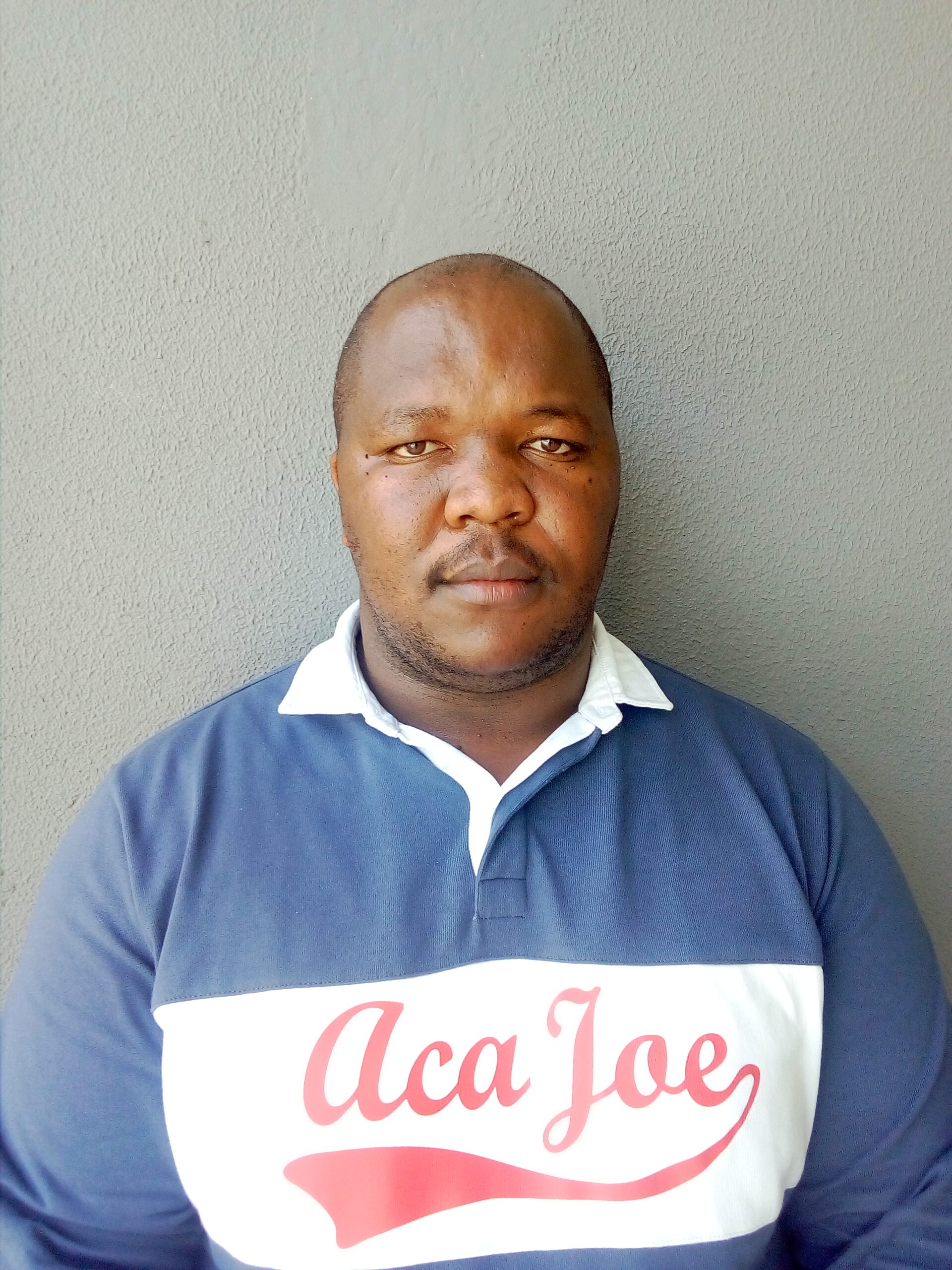
Thoboloko Ntšonyane is a dedicated journalist who has contributed to various publications. He focuses on parliament, climate change, human rights, sexual and reproductive health rights (SRHR), health, business and court reports. His work inspires change, triggers dialogue and also promote transparency in a society.


